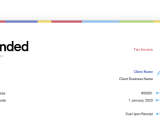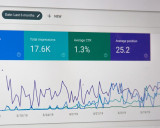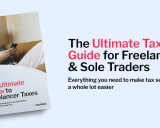Navigating a Slow Economy: Key Strategies for Sole Traders
Regular interest rate rises and increases to the cost of living have contributed to widespread uncertainty about the economy. How will your finances be impacted? What can you do to safeguard yourself and your business until things start to improve? Read on to learn some key strategies you can employ to navigate a slow economy.
Article contents
− +
The news is in; the Australian economy may be about to slow a little… more. Just today, Michael Read at the AFR noted that ‘The economy expanded by a weaker-than-expected 0.2 per cent in the first three months of the year’. In my opinion, a weaker-than-expected economy will ultimately lead to higher prices everywhere.
What can you focus on? As a sole trader, you can harness opportunities to weather the storm and thrive.
Here are five key strategies to leverage a slow economy:
Refine Your Business Model
The slow economy is a perfect time to reassess your business model. You identify inefficiencies, streamline operations, and adjust your offerings to meet consumer demands. Market research is crucial during this phase to understand what customers seek during challenging times. This could range from lower-cost alternatives to premium services providing more value.
For instance, if you are a fitness instructor and notice clients cutting back on personal training sessions, consider offering group training sessions or online tutorials. This change could provide more affordable options for your clients while maintaining or increasing your income.
Build and Strengthen Relationships
During a slow economy, people are often looking for trust and security. This period is an excellent opportunity to build and strengthen relationships with your existing customers. Communication is vital here - be empathetic, listen to their concerns, and offer solutions that meet their needs.
Furthermore, a downturn is also a chance to network with potential partners and suppliers. Building relationships with other businesses can open doors to shared resources, cross-promotion, and collaborations that can mitigate the impacts of a slow economy.
Invest in Digital Presence
With physical traffic likely to decline during an economic slowdown, optimising your digital presence is essential. Ensuring your website is up-to-date and easy to navigate can help draw in more customers. Investing in search engine optimisation (SEO) can also increase online visibility.
Moreover, using social media channels to engage with your audience, share valuable content, and promote your products or services can increase your customer base. Email marketing, online ads, and leveraging online marketplaces can also bring substantial returns.
Emphasise Value Over Price
When times are tough, customers seek value rather than just low prices. They want to ensure they're using their limited resources best. You can often provide personal service and attention to detail.
Work to highlight your value, whether it's your expertise, high-quality products, or exceptional service. If customers perceive they're receiving excellent value for their money, they'll be likelier to stick with you, even in a slow economy.
Embrace Innovation and Diversification
Lastly, a slow economy can be an ideal time to embrace innovation. This could involve exploring new markets, developing new products or services, or adopting new technologies to enhance your business operations.
Diversification can also offer a safety net during economic downturns. By diversifying your income streams, you reduce the risk that any downturn will severely impact your business. For instance, if you're a freelance graphic designer, you could diversify by offering training workshops, creating design templates for sale, or venturing into copywriting.
Navigating a slow economy as a sole trader involves reevaluating your business model, strengthening relationships, boosting your digital presence, emphasising value over price, and welcoming innovation and diversification. These strategies may require time and resources, but they can pay off significantly by ensuring your business's resilience and growth during challenging economic times.
Photo by Towfiqu barbhuiya on Unsplash
Join newsletter
ABOUT ROUNDED
Invoicing and accounting software for sole traders. Get paid faster and relax at tax time.


























-p-1600.jpeg)
